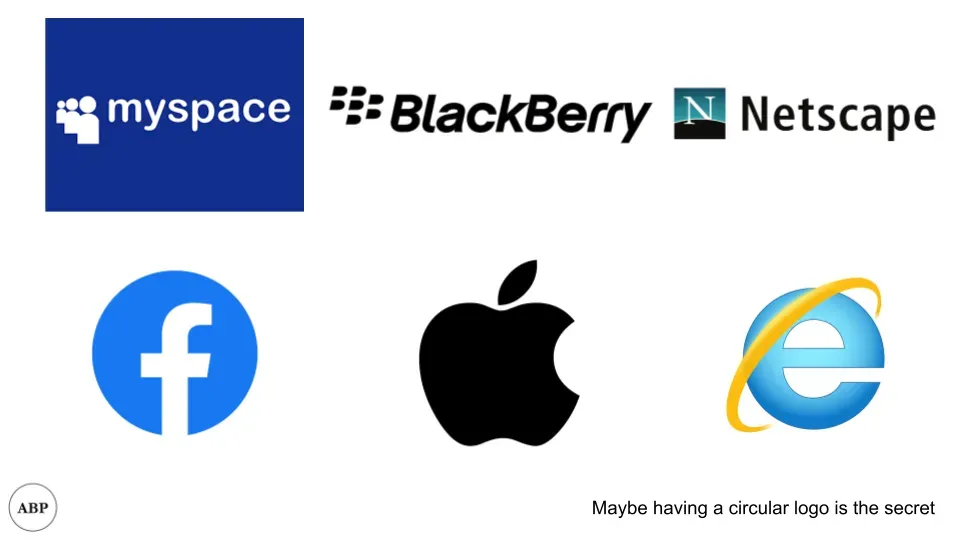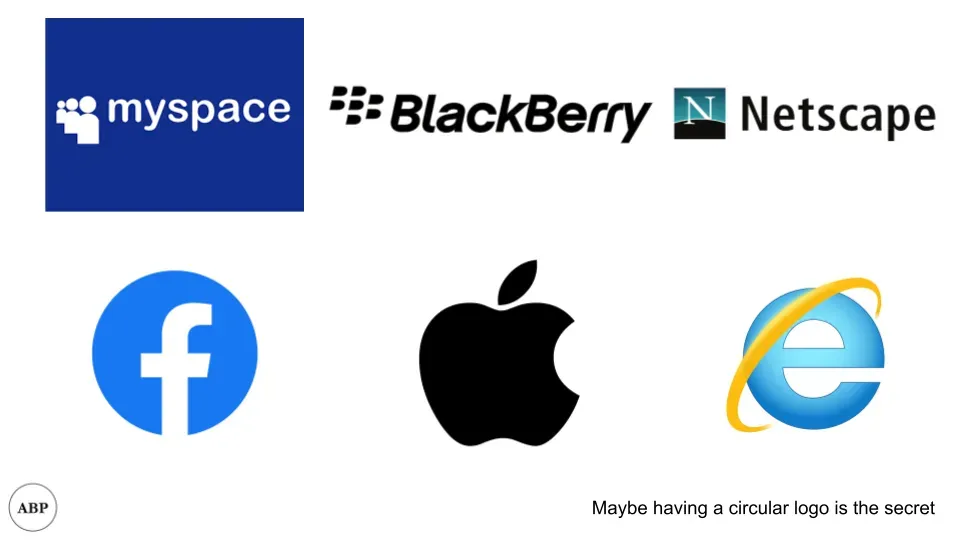Book Review: Algorithms to live by
How can we apply algorithms to improve decision making in real life?

There’s a lot of similarity between early internet trends and things that are popular today.
I read How the internet happened by Brian McCullough recently, and it was a good read on the history of consumer internet. The book starts around the origin of Mosaic (one of the first internet browsers), and goes up to Facebook and Iphones. Reading the founding stories of internet companies one chapter at a time, I was surprised by how similar many of the issues were vs today.
Takeaways for me below, and longer notes follow:
The internet helped change cultural mindsets, by making it possible for anyone to create:
The web, by contrast, allowed users to consume content, and create it. Any user. Anywhere. Any kind of content.
Companies usually start out being opposed to the creativity, wanting a higher degree of control over their ecosystem. However, the value generated by giving users freedom usually far outweighs the drawbacks. It’s why we see so much trash online now - with great power comes great frivolity.
He was also worried that he and Andreessen were opening the floodgates to frivolity and junk. “And I was right! People abused it horribly,” [Mosaic browser cocreator] Bina said later. “But Marc was also right. As a result of the glitz and glitter, thousands of people wasted time to put in pretty pictures and valuable information on the Web, and millions of people use it.”
In the end, the battle to do an app store was a replay of the argument over opening up iTunes to Windows users a few years earlier. Just as before, everyone inside Apple wanted to do it, and Jobs kept saying no.
We’ve seen this play out in books, saw it play out on the desktop browsing experience, and are now seeing it on the mobile usage experience. People want everything, and they’ll get it eventually because there’s money to be made:
Infinite selection. Instant gratification. On any device. When it comes to digital disruption of media, it is almost never about free content or piracy, not at the core. It is always about giving people what they want, when they want it, how they want it.
The idea that random events or random people could go viral really entered the mainstream thanks to Youtube
This creativity also can lead to a feeling of community, when you find people that like the same things that you do.
We’ve seen a resurgence of interest in a “Community Manager” role, where companies hire people to interact with their customers in some online forum equivalent, be that Slack, Circle, Discord or more. There’s been many recent articles talking about how building a community can be a
This isn’t new, and the pioneers of the internet already discovered the importance of engagement:
But the main feature of CompuServe [the first internet provider] throughout its life was its forums, hundreds of moderated special-interest sites catering to almost every interest and niche imaginable
A focus on community, on empowering the users and allowing them to function autonomously would prove to be absolutely vital [for eBay’s success]
eBay was one of the first websites to show that a largely anonymous community, carefully constrained by a few guidelines and regulations, but invested in a system of online reputation, could actually work
one key innovation [of the Mercury Center] was that reporters were urged to interact with readers about their stories
We’ve heard about first mover advantage, and the book also showcased many first mover failures.
Microsoft’s Internet Explorer dislodged Netscape, despite Netscape’s 70% user share headstart:
They would follow the traditional Microsoft game plan: the first version would be a copycat product that didn’t have to be great; it just had to be good enough. Subsequent versions would be better.
And we know now that Chrome would displace IE. Similarly, Facebook would displace MySpace, Apple would displace Blackberry, and so on.

A simple reason for that is that things change quickly, requiring a change in business strategy. Imagine if your business model had assumed ad click through rates “conservatively” in the 40s for the future? Considering they’re now <5%, you’d have been off by a magnitude.
[The first banner ads] bordered between the high 70s and lows 80s in terms of click-through percentages for about 2-3 weeks
The need to produce more impressions began to change the calculus at the search sites […] Yahoo needed to find a way to keep users on its pages.
As we discussed on abstraction, companies wanted to commoditise the layer below them:
Netscape benefited as the underlying platform that was the most trusted and valued by users […] Netscape would even encourage others to build add-ons and plugins that would interact with Netscape’s own software, adding features and functions that Netscape itself couldn’t dream up.
Andreesen was quoted saying that Netscape would turn Windows into “a mundane collection of not entirely debugged device drivers.”
And that usually involves making someone else obsolete:
Bezos would lure the offline retailers onto a battlefield of his choosing, which was the web.
None of the below is new; you could insert the name of any other sector or “hot” company and get the same takeaway - shipping routes, railroads, japanese stocks.
There will always be a cool company.
Fund managers who did not fill their holdings with technology stocks saw their returns trail those of their peers and even the market indexes
When later asked why Yahoo enjoyed a greater stock market valuation than rival search companies such as Excite, a stock analyst would reply, “Yahoo is cool! It’s not a technology company. It’s a brand, it’s an article of culture.”
Sex was a driver of key technology, and is still a factor today. Facebook, snapchat, tiktok - all started as, and to various extents still are, facilitators for sex:
It’s safe to say that the popularity and growth of AOL was driven by sexy chat. Lots and lots of sexy chat.
This quote below was said in 2006, but you’d be forgiven for thinking it was some snapchat/insta/onlyfans creator in 2021:
The book also dispels some of the PR founding stories for the tech companies:
The well-worn legend is that Jeff Bezos and his wife MacKenzie packed up their car and headed west, unsure of where they were going, with Jeff typing up a business plan on his laptop as they drove and phoning angel investors along the way on his cell phone. But the truth is, Bezos had already flown out to California to recruit software engineering talent. And according to multiple accounts, he likely knew the destination of his cross-country car trip would be Seattle.
Many people are familiar with eBay’s founding myth: how Pierre Omidyar created the site so his finacee could expand her Pez dispenser collection. But like many company creation stories, the Pez story is a fiction. The Pez story was created by Mary Lou Song to get reporters interested in covering eBay’s role in the collectibles phenomenon.
Despite the populist image it cultivated later, Napster was conceived of as a business from day one […] This inclination was partially a result of the time Napster was born into; 1998 into 1999, when Napster was being developed, was the height of the doct-com mania. But it was also because the brilliance of the Napster idea was immediately obvious to everyone involved
The official tale of Netflix’s birth is that CEO Reed Hastings got a $40 late fee for not returning a copy of Apollo 13 in time. Incense, he founded a DVD-rental company that wouldn’t treat its own customers so shabbily. Like eBay’s Pez Dispenser, however, this late-fee-as-eureka-moment is merely a PR-friendly origin story dreamed up retroactively. Netflix was actually the brainchild of Marc Randolph, who had been an employee at one of Hasting’s previous companies
Get my next essays in your inbox:
Comments